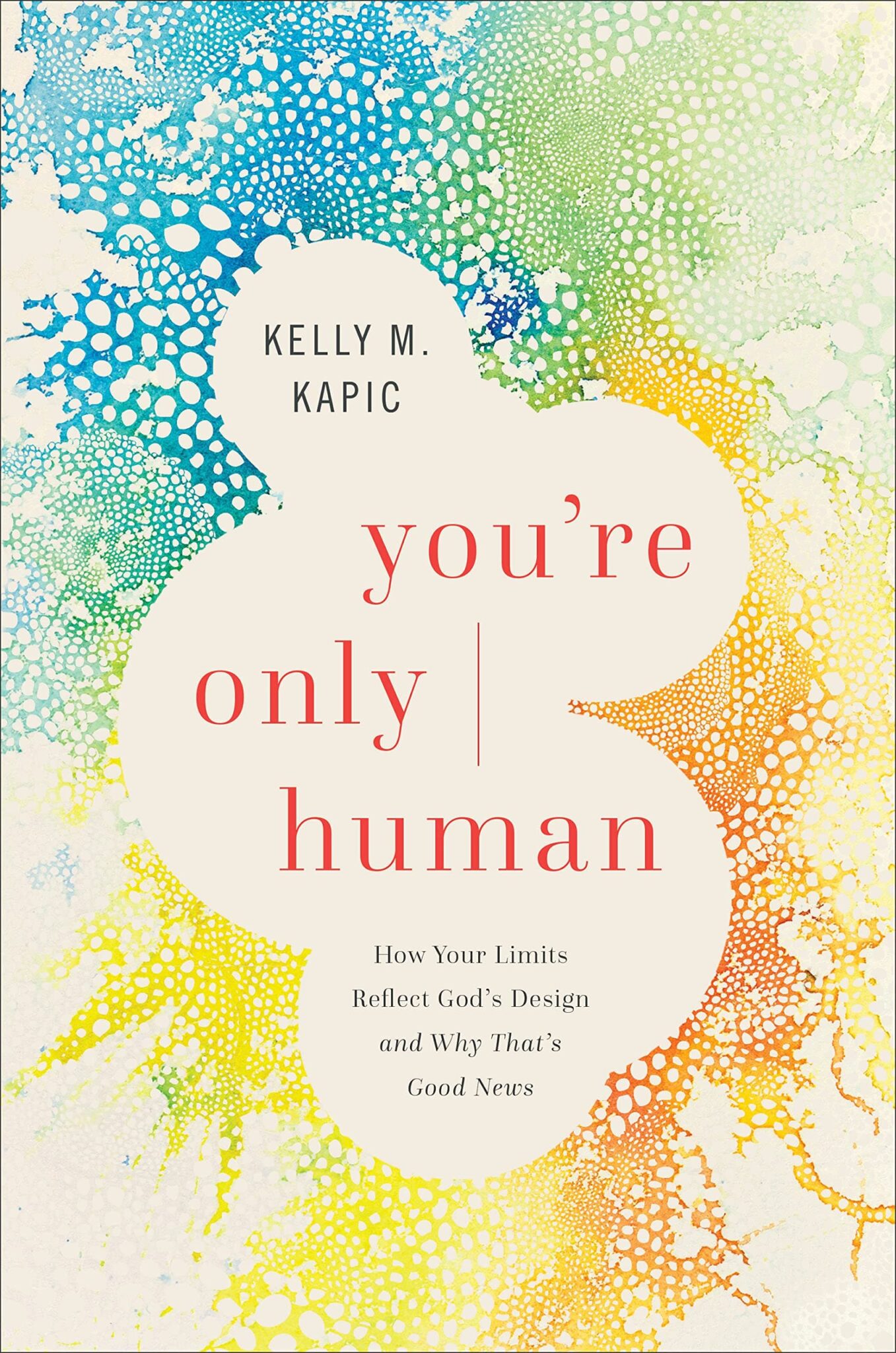Many of us live in performance-oriented families and cultures where human identity is intrinsically connected with our work output. In our pursuit of a meaningful life, we’re left exhausted, disoriented, and confused. Most of all, we don’t know what God wants us to do with this short time we have on earth. In an age of ‘how-to’ books, laying yet another burden on the never-ending list of tasks is the last thing we need.
What we really need is a Biblical portrait of who we are, what God calls us to do, and how we can do this. Kelly M. Kapic’s You’re Only Human does just that. It’s the sort of book you need to take off your ‘to-read’ list and just start reading. Among the many reasons this book is worth reading, here are just three:
1. Human Finitude ≠ a Curse
It’s tempting to think our limitations are a mark of our sinfulness. Whether it’s our unrealistic expectations regarding our capacity, our need for rest and recreation, or our need to depend on other humans for help and support, our lives bear the marks of being made imago dei. That is, because we are not God, we have limits.

You're Only Human: How Your Limits Reflect God’s Design and Why That’s Good News
Kelly M. Kapic
You're Only Human: How Your Limits Reflect God’s Design and Why That’s Good News
Kelly M. Kapic
You’re Only Human doesn’t share better time-management tips to squeeze more hours out of the day. Kelly Kapic offers a better way to make peace with the fact God didn’t create us to do it all.
Kapic explores the theology behind seeing our human limitations as a gift rather than a deficiency. He frees us from confusing our limitations with sin and instead invites us to rest in the joy and relief of knowing that God can use our limitations to foster freedom, joy, growth, and community.
Readers will emerge better equipped to cultivate a life that fosters gratitude, rest, and faithful service to God.
In You’re Only Human, Kapic offers a refreshing perspective on what it means to be a creature. He argues that only when we recognise ourselves as creatures can we truly flourish, both in our relationship with God and one another. He digs into the tendency of our hearts to live in perpetual guilt that we are not doing enough. Rather than offering a behavioural solution, Kapic gets to the heart of the issue—an unbiblical understanding of human finitude. When we deny this, we are “cripple[d] … in ways we don’t realize. It also distorts our view of God and what Christian spirituality should look like.” (6)
Only when we come to recognise God as Sustainer—and therefore see our own creatureliness—can we begin to rest on him as dependent beings (Ps 46:10). Contrary to our productivity-driven age in which self is God, Kapic reminds us to find our identity in our relation to God as Creator. Only when we come to see this will we realise that our limits are not a curse.
“Only when we recognise ourselves as creatures can we truly flourish”
2. Identity ≠ Self-Generated
A prominent feature of life in the 21st century is our obsession with identity. Identity, according to our postmodern age, is self-generated: we discover out who we are when we look within. But this always leads to confusion, pressure, and the atomisation of society. Kapic shows us we can discover our distinct personal identity only by looking through the lens of union with Christ. He writes:
The fact that my identity must be in Christ doesn’t change the fact that I am this person and not that one…when our search for identity in Christ includes a healthy view of creaturely finitude and particularity, then we see something truly beautiful and unique take shape. (73)
This reminder is much needed when self-fulfilment is often portrayed as the goal of life. Kapic reorients us to Christ as the source of our identity and worth as unique creatures made in the image of God. Thus, human identity is not something which is self-realised, but rather comes about when we find ourselves in relation to the God who made us, and who united us to his Son (2 Cor 5:17).
3. Christianity ≠ Individualistic
Kapic points out an obvious but often forgotten truth: we grow as Christians when we live in community with God’s people. Rather than being entirely individualistic, the Bible upholds individual dignity whilst simultaneously affirming our identity as members of the body of Christ (Eph 4:1-7; 1 Cor 12:12-31). We can’t uphold the former and forsake the latter.
For starters, this means the path toward Christian maturity is not one we walk in isolation:
It takes the whole church to be the one body of Christ. Serving and depending on others constitutes a twofold dynamic that builds up the community in faith, hope, and love. The diversity within the church’s unity displays God’s presence and action in this world. (167)
Combatting our individualistic tendencies, we must recognise that Christian maturity cannot happen unless we are invested in God’s covenant community. Neither Zoom church nor podcasts will suffice. In its most basic sense, being actively involved in the life of a healthy local church is a non-negotiable for Christians.
Many of us who struggled during the pandemic lockdowns are painfully aware of how deep the need for face-to-face fellowship really is. It helps us appreciate the Apostle John’s own longings:
I had much to write to you, but I would rather not write with pen and ink. I hope to see you soon, and we will talk face to face. (3 Jn 13-14)
The Bottom Line
You’re Only Human is refreshing. Far from leading us to despair, remembering our creatureliness leads us to lean upon our infinite God. Rather than questioning who we are further, looking to Christ secures us in our identity. And instead of feeling like we have to walk alone, we’re reminded we were made to grow in community with one another.
Ultimately, in Jesus we realise it’s a good thing we’re only human.















